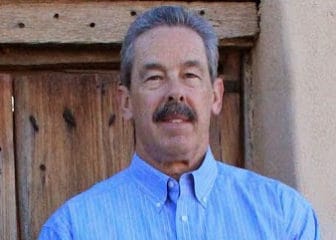COMMENTARY: Amid the cries and protests regarding police shootings, there has been a push for a national standard in police training in the hopes that incidents of violence between officers and the communities they represent can be reduced. Presumably, this standard would involve direction from the government on specific requirements for the selection, hiring, training and evaluation of individuals for the position of law enforcement officer.

Courtesy photo
J.R. Lonsway
This idea is based on a supposition that police are either not properly, or are improperly, trained for incidents they face on the street, and that a national standard will help remedy issues regarding use of force.
As it currently stands, New Mexico has requirements for basic police academy and in-service training. These standards are set by the New Mexico Law Enforcement Academy Board (NMLEA) at the direction of the New Mexico Legislature (NM Statute 29-7-1 through 29-7-21). That may surprise some people, the fact that everything from the selection process for a basic academy, all the way through to mandatory in-service training that an officer must receive annually during his/her career, is part of the legislative process.
The requirements are passed down from NMLEA to those agencies that host their own police academies and in-service training (you can see more of this at nmlea.dps.state.nm.us). Compliance is mandatory. Failure to comply results in the certification of the agency being taken away, although I am unaware of any agency that has been found noncompliant.
All instructors must be certified by the NMLEA (certification is acquired through a 40-hour law enforcement instructor development course, or a college-level public speaking course of one semester). If an instructor is not certified, a certified instructor must be in the classroom at the time the instruction is given to assure that the lesson plan is adhered to and the level of professionalism is maintained.
Another exception to the “certified trainer” rule are those professionals deemed capable, competent, and qualified to instruct because of their profession and the nature of the course they are instructing (MDs, lawyers, judges, psychologists, etc). There are other specialized instructor courses that no one can teach but the personnel who have been certified in the subject matter, which includes firearms, defensive tactics, and use of force.
Courses such as cultural sensitivity, race relations, dealing with mentally challenged or mentally ill persons, domestic violence, conflict resolution, etc. are important courses that are included in the academy curriculum but not necessarily taught by police instructors. As far back as 1979, when I went through the LCPD academy, persons representing the NAACP, LULAC, LGBT (although the organization name at that time was different), parents with special needs children, and others spoke to us.
Those courses are enlightening. It is one thing for a police cadet to hear a professional speak about what to expect when dealing with a person that is schizophrenic, or autistic, but it’s another matter entirely to hear about it from the parent of that child.
Would a national standard make training any different from what it is now? That would require a review of the training curriculum of all 50 states; but, remember, determining what is to be taught does not come down to a bunch of cops sitting around deciding what they want, and don’t want, to teach. The input comes from academics at universities who specialize in criminal justice, law enforcement professionals that specialize in police training, and other professionals who have knowledge and insight into what courses of instruction would be beneficial to the training of police officers, especially at the recruit level (lawyers, judges, psychologists, medical professionals, etc.).
Ultimately, the agenda must be approved by the NMLEA Board, which is chaired by the attorney general.
Just as important as what is taught is who is taught. That means the selection process must be rigorous. For most law enforcement agencies, the process begins with a written exam, and those who pass are then scheduled for a physical agility test. Successful completion of that phase leads to an oral interview, and if the candidate gets through the oral board, a background investigation is conducted.
Part of the background investigation is the polygraph. (I’m not a fan of the polygraph, for two reasons: The polygraph is only as good as the polygraphist operating it, and I saw candidates for positions with LCPD who came up deceptive on questions regarding drug use and thievery who were still allowed into the academy, even after failing two polygraph exams! What’s the point of having a polygraph if the candidate can lie and get away with it?)
After the background comes the medical exam, and if they pass that the candidate is accepted into the police academy. That begins six months of training, and if the recruit makes it to graduation day, they are then assigned to a shift and put through a 14-week field training phase. They also must complete one year of probation. NMLEA also requires a 40 hour in-service training minimum for each officer every year on specific topics (see the website). Most departments give more than that.
I believe New Mexico has a model system in place. While trainers are always on the lookout for state-of-the-art methods to improve on what is taught and how it is taught, I’m not convinced that a national standard could enhance the level of professionalism put forth by the NMLEA. Just remember, cops are human beings, not robots; 99.99 percent of the time they are going to do the right thing, and that one-hundredth of a percent of the time when they don’t, it is usually a matter of minor, insignificant standing.
Certainly there are aberrations, but those are seldom training-related; in fact, nearly all instances of police misconduct are not a result of training, but stress-related factors in the officer’s personal and professional life.
J.R. Lonsway is a retired deputy chief of police with the City of Las Cruces and the author of Twenty. He blogs at jrlonsway.com.